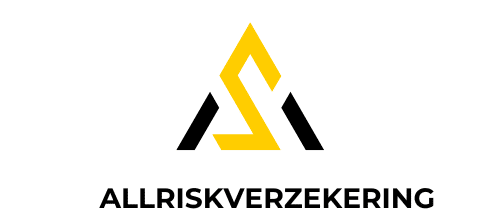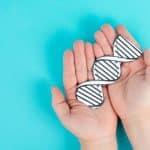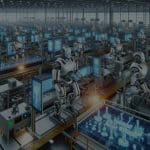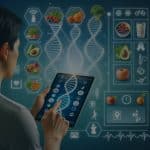In the quest for optimal health, the role of diet and nutrition cannot be overemphasized. They hold the key to unlocking an individual’s wellness potential. However, the path to a healthy lifestyle isn’t clear-cut as it varies from one person to another. This is where personalized dietary advice comes into play. Understandably, achieving personalization in dietary planning demands a blend of knowledge and technology. But how does technology aid in creating a customized nutrition plan? The answer lies in the power of data, tools, and specific algorithms employed in the realm of dietary science.
Utilizing Personal Data in Nutritional Advice
The starting point of personalized nutrition is the collection and analysis of personal data. Now, technology comes into play by providing platforms that facilitate the gathering, storing, and processing of these data. Instead of generic advice, nutritionists can now provide scholar-based advice that is tailored to the individual’s unique needs and preferences.
Also read : Can Smart Fabric Enhance Athlete Performance Monitoring in Competitive Sports?
Personal data can range from information about an individual’s lifestyle, dietary intake, physical activity level, health status, and even genetic makeup. For instance, wearable devices and mobile health apps can track physical activity and dietary intake in real-time, providing a wealth of data to be analyzed. In addition, genomic tests can reveal how an individual’s body processes certain foods and nutrients, paving the way for truly individualized dietary advice.
A research study published in the ‘Journal of Nutritional Science’ confirmed that personalized dietary advice based on personal data leads to more effective behavioral changes than generic dietary guidelines. This can result in improved health outcomes, including weight management, better control of blood sugar levels, and reduced risk of chronic diseases.
Also read : Can AI Predict and Prevent Unplanned Downtime in Manufacturing Facilities?
Harnessing the Power of Gut Microbiome
The human gut is home to trillions of bacteria collectively known as the gut microbiome. Recent studies have shown that the gut microbiome plays a significant role in our health, influencing everything from metabolism to mood, immunity, and even heart health. The composition of this gut microbiome varies among individuals, making it a goldmine for personalized nutrition.
Technology has made it possible to analyze the gut microbiome, thereby giving a peek into the individual’s internal ecosystem. This can provide valuable insights on how the body responds to certain foods. For example, some people may have a gut microbiome that’s efficient at breaking down carbohydrates, while others may be better at metabolizing fats.
By understanding an individual’s gut microbiome, nutritionists can make specific dietary recommendations. This ensures that the person’s diet aligns not only with their goals and preferences but also with their unique gut microbiome.
Personalized Nutritional Tools and Apps
Various technology tools and apps have emerged to facilitate personalized nutrition. These tools use algorithms to analyze personal data and provide individualized dietary advice.
For instance, meal planning apps can suggest meals based on an individual’s dietary preferences, health goals, and even food allergies. They can also keep track of the nutrient intake, ensuring that the individual is getting the right balance of macronutrients and micronutrients needed for their health.
Some apps even use machine learning to continuously learn from the user’s data, thereby refining the dietary advice over time. This ongoing adjustability and personalization is key to the success of technology in personalized nutrition.
The Future of Technology in Personalized Nutrition
As technology continues to evolve, it’s expected that we’ll witness even more advancements in personalized nutrition. The future holds the promise of even more sophisticated algorithms, capable of analyzing complex data sets, and an increasing integration of different types of data, from genomic data to real-time lifestyle data.
Furthermore, scientists are exploring the potential of using artificial intelligence (AI) in personalized nutrition. AI has the potential to continuously learn and adapt to an individual’s changing needs and circumstances, making dietary advice truly personalized.
In Summary
The role of technology in personalized nutrition is undeniable. From collecting and analyzing personal data, studying the gut microbiome, to the use of apps and tools for individualized advice, technology is transforming the way we approach diet and nutrition. As we continue to make strides in this field, the dream of truly personalized nutrition is becoming more of a reality. The future of nutrition is not just about eating healthy, it’s about eating what’s right for you. And technology is the driving force behind this revolution.
While the tremendous potential of technology in personalized nutrition is apparent, it’s essential to remember that technology is simply a tool. It’s the combination of this technology with the knowledge and expertise of healthcare professionals and nutritionists that can truly make a difference in improving individual health outcomes. So, as we look forward to the future of personalized nutrition, let us embrace the exciting technological advancements while also remembering the invaluable role of the human touch.
AI Revolutionizing Personalized Nutrition
Artificial Intelligence (AI) is progressively transforming the field of personalized nutrition. AI-powered tools and platforms can process vast amounts of dietary data, analyze intricate patterns, and generate personalized dietary recommendations. This machine learning capability of AI makes it remarkably suitable for the dynamic nature of nutrition, where dietary intake and physical activity can fluctify daily.
One pioneering example of AI in personalized nutrition is the use of machine learning algorithms to analyze food records. These algorithms can identify dietary patterns, detect nutrient deficiencies, and recommend dietary adjustments accordingly. AI can also automate the process of dietary assessment, making it easier for individuals to keep track of their dietary intake.
Another promising application of AI is in the study of the gut microbiome. AI algorithms can analyze the complex microbial ecosystem within our gut, providing insights into how our gut health relates to our overall health outcomes. Based on this, AI can suggest personalized dietary adjustments to enhance gut health and promote overall wellness.
Google Scholar and PubMed even publish articles that highlight AI’s transformative potential in nutrition science. However, it’s important to note that AI should complement, not replace, human expertise. AI can provide data-driven insights, but it’s up to nutritionists and healthcare professionals to interpret these insights and make the final dietary recommendations.
Conclusion: Embracing the Future of Personalized Nutrition
The landscape of nutrition is being redefined by the incorporation of technology, paving the way for a more precision nutrition approach. We’re moving away from a one-size-fits-all model towards a personalized model that considers individual genetic makeup, lifestyle, health goals, and even the gut microbiome.
Technology plays a pivotal role in this transformation. From wearable devices that track physical activity and dietary intake, mobile apps that offer personalized meal plans, to AI algorithms that analyze complex dietary data – technology is empowering us to make more informed dietary choices.
But as we embrace these technological advancements, we must also remember the human element. Technology serves as a tool, providing us with data-driven insights. Yet, it’s the expertise and guidance of healthcare professionals and nutritionists that translates these insights into actionable behavior change.
In summary, the future of personalized nutrition lies in the blend of technology and human touch. It’s about leveraging technology to gain a better understanding of our unique nutritional needs, and relying on professional expertise to turn this understanding into a personalized nutrition plan. It’s about eating not just healthily, but eating what’s right for us. As we continue to innovate and invest in this field, the dream of truly personalized nutrition is becoming more of a reality. The future is certainly exciting for those passionate about health and nutrition.
















